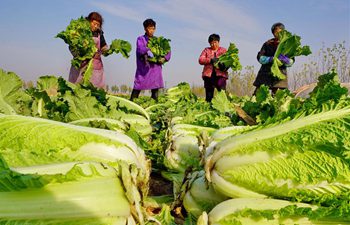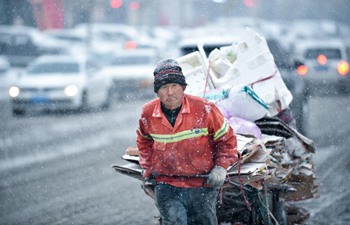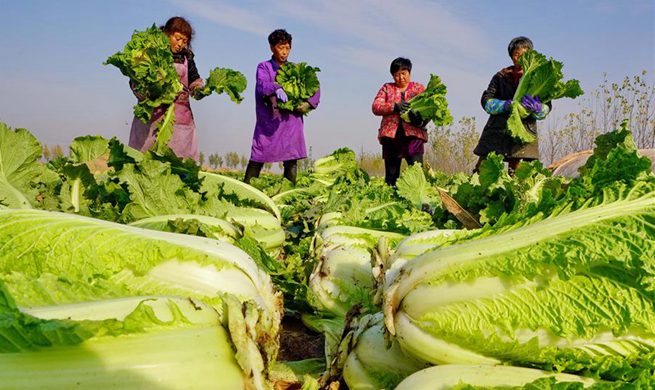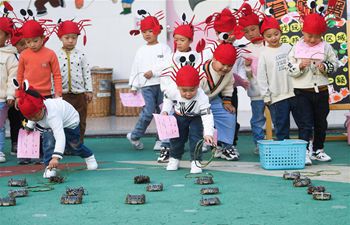UNITED NATIONS, Nov. 18 (Xinhua) -- While historic gains overall for the world's children have been achieved since the Convention on the Rights of the Child (CRC) was adopted 30 years ago, many of the poorest children are yet to feel the impact, according to a report by the United Nations Children's Fund (UNICEF) released on Monday.
Part of commemorations marking the 30th anniversary of the CRC, the report, The Convention on the Rights of the Child at a Crossroads, looked at the undeniable achievements of the past three decades, proof that where there is political will and determination, children's lives improve.
"There have been impressive gains for children over the past three decades, as more and more are living longer, better and healthier lives. However, the odds continue to be stacked against the poorest and most vulnerable," said UNICEF Executive Director Henrietta Fore.
"In addition to the persistent challenges of health, nutrition and education, children today have to contend with new threats like climate change, online abuse and cyberbullying," she said, adding that only with innovation, new technologies, political will and increased resources will we help translate the vision of the convention into a reality for all children everywhere.
Citing progress in child rights over the past three decades, the report noted that the global under-five mortality rate has fallen by about 60 percent, and the proportion of primary-school-aged children not in school decreased from 18 percent to 8 percent.
However, the report noted that in low and middle-income countries, children from the poorest households are twice as likely to die from preventable causes before their fifth birthday than children from the richest households.
Recent available data showed that only half of children from the poorest households in sub-Saharan Africa are vaccinated against measles, compared to 85 percent of children from the richest households. Despite a decline in child marriage rates globally, the poorest girls in some countries are more at risk today than they were in 1989.
The report also warned of new threats affecting children around the world, including poverty, discrimination and marginalization, climate crisis and a slowdown in immunization coverage rates, called for urgent action and a recommitment to child reghts.

















